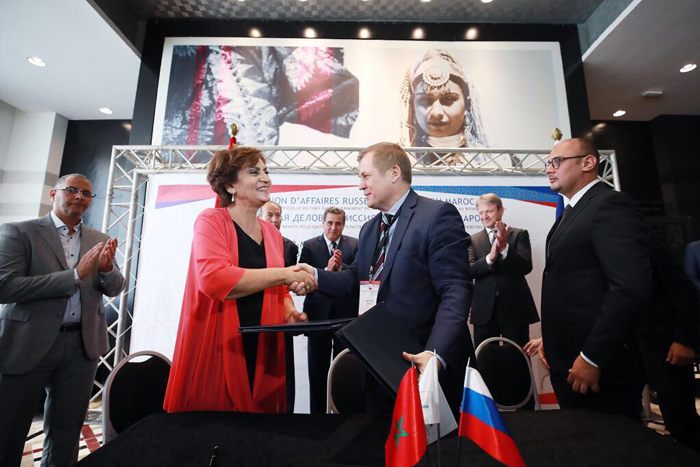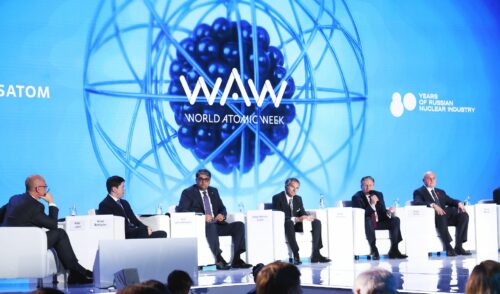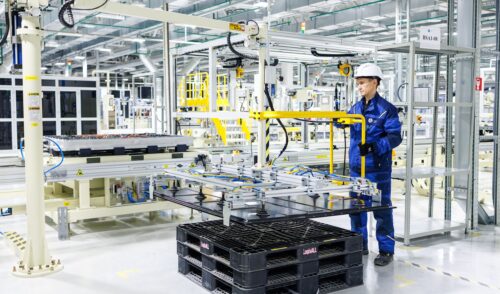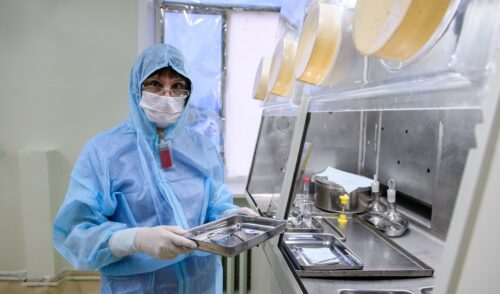
Rosatom Goes Africa
back to contentsRosatom’s subsidiary Rusatom Healthcare and Regional Center for the Middle East and North Africa have signed a memorandum of understanding with CMI Développement and the Regional Council of Morocco’s province Marrakesh-Safi. The document provides for long-term cooperation in establishing multi-purpose irradiation centers in Marrakesh-Safi and organizing isotopes supplies to the country’s medical institutions. The memorandum was signed on the margins of Morocco-Russia Business Forum held by the Russian Export Center in Rabat.
The parties agreed on a road map to join efforts in food irradiation. Rusatom Healthcare’s CEO Denis Cherednichenko stressed the importance of the memorandum as it opens up new opportunities for mutually beneficial cooperation between the Russian Federation and the Kingdom of Morocco. “We see great potential in Morocco’s irradiation market and are convinced that our isotope products will be in demand with the kingdom’s medical institutions,” Mr. Cherednichenko added.
While commenting on the memorandum, Abdelaziz Gaouji, Head of Marrakesh-Safi’s Commission for Economic and Social Development, Environmental Protection and Education, noted, “Marrakesh-Safi’s Regional Council and CMI Développement are pleased to start working together with such a prominent organization as Rosatom, which has competencies in the use of irradiation technologies both in agriculture and medicine. I am certain that our cooperation will create much added value in these segments both on the local and regional levels.”
One more memorandum was signed with Morocco. Rusatom International Network through its regional center Rosatom Middle East and North Africa and the National Center of Nuclear Energy, Science and Techniques of the Kingdom of Morocco (hereinafter referred to as CNESTEN) signed a memorandum of understanding on cooperation in peaceful uses of atomic energy. The memorandum opens wide areas of bilateral cooperation in the peaceful application of atomic energy, such as: basic and applied research, use of radioisotopes and radiation technologies in industry, agriculture, medicine etc., nuclear fuel cycle products and services supply, assistance in developing of the Kingdom’s nuclear infrastructure, maintenance and equipment supply for the needs of the national atomic program of Morocco.
The document also embraces assistance in education, training of administrative and scientific personnel for the needs of national atomic programme, as well as support in raising of public awareness and acceptance of nuclear energy in the Kingdom.
Our readers should remember that last year Rosatom signed an agreement with India at the BRICS summit in New Delhi to develop a network of integrated radiation treatment centers. The network will be managed by a joint Russian-Indian venture. The first phase of the project includes construction and commissioning of seven irradiation centers in India.
Workforce Training in Algeria
Last week, Rosatom and the Algerian Atomic Energy Commission (COMENA) signed a memorandum of understanding to cooperate in workforce training for the national nuclear industry. The document was signed at a meeting between two Prime Ministers – Dmitri Medvedev and Ahmed Ouyahia. In September 2014, Russia and Algeria signed an intergovernmental agreement on peaceful uses of nuclear energy. It was noted that the core project of the two countries might be construction of a Russian-designed VVER reactor unit in Algeria.
In October 2014, Rosatom’s former CEO Sergei Kiriyenko said at a press conference that Rosatom started project consultations with its Algerian partners. Algeria plans to build its first nuclear plant by 2025 and subsequently commission a new power unit every five years. The country has sufficient resources to sustain operations of nuclear facilities. Its uranium reserves of almost 29,000 tons will suffice for 60 years’ operation of two nuclear plants with a 1,000 MW capacity each. At present, Algeria operates only two – 3 MW and 15 MW – research reactors.




